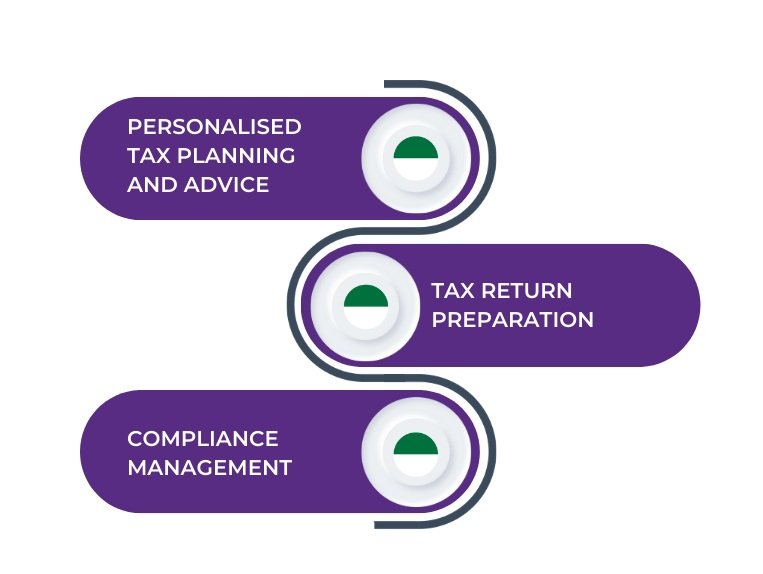
Consulting and Compliance
Tax Compliance
Supporting you in meeting your obligations.
At Camphin Boston, we provide a full suite of tax compliance services to our clients. Whether you are an individual, company, trust, partnership or self-managed superannuation fund, we will work with you to help you comply with your reporting and payment obligations to the relevant tax authorities.
Tax Consulting
Expert Tax Consulting and Compliance Services
Are you struggling to navigate the complex world of tax laws and regulations in Australia?
At Camphin Boston Chartered Accountants, we offer customised and commercially sound solutions to help you stay on top of your tax obligations and minimise your tax liability.
Tax consolidation
Tax return preparation
Tax incentives (including research and development, early stage investors)
Employment taxes (including employee share schemes)
Capital gains tax
International tax (including thin capitalisation, transfer pricing, withholding tax)
Fringe Benefits Tax planning and compliance
Goods and services tax
State taxes (including land tax, payroll tax and stamp duty)
Business restructure (including buying / merging / selling business, optimal structure)
Retirement tax planning
Salary packaging
Client Focused
We are committed to providing exceptional service and building long-term relationships with our clients.
Wide Range of Industries
We specialise in various sectors, including manufacturing, retail, and agriculture.
Experienced Tax Professionals
Our team of tax experts has a deep understanding of the Australian tax system.
Personalised Solutions
We provide tailored tax planning and advice based on your unique needs and circumstances.
Mark Edwards
Partner
Melanie Lam
Director -Tax
Let's talk about Taxation Advice
-
Selling a Property in Australia (including foreign resident vendors)
Sale, cancellation, surrender or redemption of investments (such as shares, units, etc)
Becoming a non-resident for tax purposes
Loss or destruction of an asset
-
Yes, there are ways.
If you are eligible, capital gains tax (“CGT”) general concessions, small business concessions and/or other CGT concessions may apply to partially or fully reduce the capital gain made on sale of your Australian business. For Australian individuals, there may also be strategies using superannuation depending on their own circumstances. We recommend getting tax and financial advice as early in the sales process as possible so that issues such as whether to sell shares or business assets can be included in negotiations.
It is important nonetheless to set up your business structure right at the beginning in order to maximise any tax concessions or exemptions which should be available to you when you eventually sell your business. To restructure your business, CGT rollovers or small business restructure relief may be available to you.
-
You can claim expenses relating to your rental property, but only for the period your property was rented or available for rent. For example, advertising for rent, bank charges, body corporate fees, cleaning, council rates, gardening, insurance, interest, land tax, and property agent fees.
Taxpayers often miss out on maximising their negative gearing benefits by not being aware or not claiming tax deductions for items such as depreciation on building and/or new fixtures/fittings. The Australian Taxation Office (“ATO”) actively audits rental properties to ensure capital works and depreciating assets are claimed correctly.
-
The taxation treatment of ESS shares and options can be complex.
If you are an employee, your employer should provide you with an annual statement showing the value of any discount you received from the grant of ESS shares and/or options to you during an income year. Depending on the ESS terms and conditions, you may be able to defer paying tax on the discount until the shares / options are fully vested in you (or in the case of a start-up company, until they are sold).
If you are an employer, we can calculate the discount on ESS shares and/or options and determine the taxing points for purposes of preparing your employees’ annual statements, and annual report for lodgement with the ATO.
-
Payroll tax is a monthly tax levied on business if its monthly wages exceed a tax-free limit for the relevant State.
When paying wages across multiple States, the tax-free limit is apportioned across the different States. You need to register for payroll tax in each State where wages exceed the tax-free threshold.
-
Parent and subsidiary companies, entities with common directors or employees, and commonly controlled businesses can be grouped for payroll tax purposes
-
GST is a broad-based tax of 10% on most goods, services and other items sold.
If your business turnover is AU$75,000 or more, you must register and charge and remit the GST on your taxable supplies to the ATO. For non-profit organisations, the registration turnover threshold is AU$150,000 or more.
In addition, there are a number of exempt supplies such as:
GST-free supplies
Export of goods and services
Sale of a going concern
Transactions within a GST consolidated group
-
The R&D tax incentive is only available to companies and generally applies to R&D expenditure incurred in Australia (while overseas R&D expenditure can qualify only in limited circumstances).
If your company’s business is conducting R&D, it could be eligible for a cash refund or tax offset. To access the R&D tax incentive, you must register the eligible R&D activities in an application form, document your R&D plan and maintain adequate records.
-
Yes, there are a number of incentives for a start-up business including the Early Stage Innovation Company (ESIC) concessions that can provide investors with a 20% (non-refundable) tax rebate on their investment and 10 years CGT free on sale of their eligible shares, as well as the Entrepreneurs Tax Offset for individuals.
-
Fringe benefits tax (“FBT”) is payable on non-cash benefits provided to employees for private purposes. There are a number of fringe benefits that can form part of a tax-effective salary package, including motor vehicles, relocation costs, in-house benefits (e.g. free goods) and living-away-from-home allowances (up to 12 months). The benefits from salary packaging have reduced over time, so careful consideration needs to be taken here.



